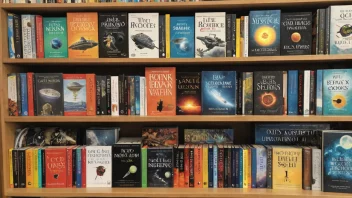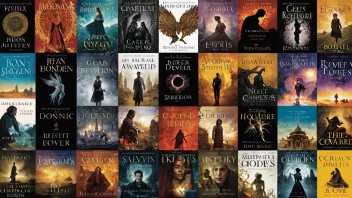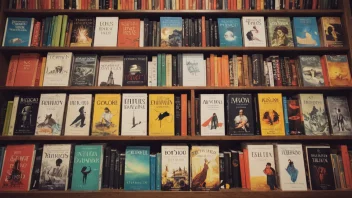The cultural zeitgeist of any era is often captured and expressed through the lens of fiction. Literature acts as a time capsule, preserving the thoughts, emotions, and struggles of a society at a given moment. In today’s rapidly changing world, fiction has become a crucial medium for exploring and understanding the complexities of contemporary life. From social media’s pervasive influence to the ongoing discourse surrounding mental health, modern fiction encapsulates the essence of our collective experiences.
One of the defining features of modern fiction is its ability to address the anxieties of our age. With the rise of technology and the omnipresence of social media, authors have begun to explore themes of isolation, identity, and the quest for authenticity. For instance, novels like 'Eleanor Oliphant Is Completely Fine' by Gail Honeyman delve into the intricacies of loneliness in a hyper-connected world. The protagonist’s journey sheds light on mental health issues while highlighting the importance of community and connection, urging readers to reflect on their own relationships.
Additionally, the increasing focus on intersectionality in literature has led to a richer understanding of diverse experiences. Contemporary authors are now more attuned to the nuances of identity, considering factors such as race, gender, and sexuality. Writers like Tommy Orange and Ocean Vuong weave their personal histories into broader narratives, creating literature that resonates with many readers. Their works challenge stereotypes and broaden the scope of representation in fiction, allowing for a more inclusive cultural dialogue.
Fiction also serves as a lens through which we examine significant social movements. The Black Lives Matter movement, for instance, has inspired a wave of literature that confronts systemic racism and highlights the struggles of marginalized communities. Novels like 'The Hate U Give' by Angie Thomas offer a poignant exploration of police brutality and social justice, empowering young readers to engage with pressing societal issues. As fiction reflects the realities of injustice, it often motivates readers to become advocates for change in their own lives.
Moreover, the rise of speculative fiction has allowed authors to explore potential futures, often serving as a warning or a call to action. Works like 'The Fifth Season' by N.K. Jemisin and 'The Power' by Naomi Alderman examine themes of climate change, gender dynamics, and societal collapse through imaginative narratives. These stories challenge readers to consider the implications of their actions today and envision alternative futures, fostering a sense of responsibility and hope.
Ultimately, the influence of fiction on modern culture is profound. It not only reflects our current realities but also shapes our understanding of the world and our place within it. As readers engage with diverse narratives, they are invited to question their beliefs, expand their empathy, and explore new perspectives. Fiction is a powerful tool that connects us to our humanity, encouraging us to reflect on our values, aspirations, and the changes needed to create a better world. In a society that often seems fragmented, fiction remains a unifying force, reminding us of our shared experiences and the stories that bind us together.
How Fiction Reflects Our Cultural Zeitgeist
Explore how modern fiction reflects the cultural zeitgeist and addresses contemporary societal issues.






